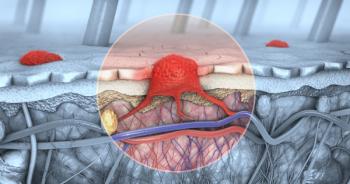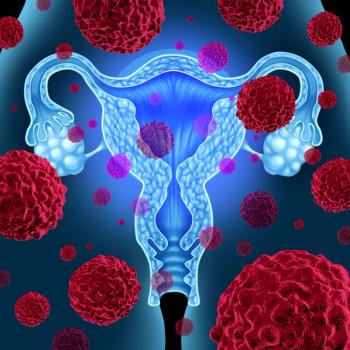
Chemoradiation Therapy for the Treatment of Bone Metastases
The combination of the chemotherapy capecitabine with external beam radiation was found to be both safe and effective in treating pain from bone metastases in patients with advanced breast cancer.
The combination of the chemotherapy capecitabine with external beam radiation was found to be both safe and effective in treating pain from bone metastases in patients with advanced breast cancer. The results from the small
While previous studies focused on a chemotherapy and radiotherapy combination in localized disease, Baruch Brenner, MD, of the Davidoff Comprehensive Cancer Center at Rabin Medical Center in Tel Aviv, Israel, and colleagues tested the safety and ability of this combination to relieve pain from bone metastases in breast cancer patients.
Clinical benefit to patients was determined as pain and analgesic scores (based on consumption). The decrease in pain for patients was statistically significant from week 1 to week 12 of the trial (P < .001). Two patients experienced progressive pain after the first week, and 48% had stable pain. By week 12, none of the patients had progressive pain.
“The pain relief was durable and was accompanied by a significant decrease in the need for pain control medications,” stated the authors.
Fourteen percent of patients had a complete response after the first week, and 38% and 52% of patients had a complete response by weeks 2 and 8, respectively. A complete response was defined as a score of zero on a 10-point pain scale and no increase in taking analgesics for pain. Partial responses (a decrease of two points on the pain scale and no increase in analgesics consumption) were seen in 31% at week 1 and 38% at week 12.
The definition of response was the same as recommended by the International Bone Metastases Consensus Working Party.
Patients were treated with 1,400 mg/m2 oral capecitabine for 5 days in conjunction with radiotherapy. While 1,650 mg/m2 is the typical dose used in combination with radiotherapy to treat patients with rectal cancer, the authors chose a lower dose because the combination therapy had not previously been tested in breast cancer patients.
The combination treatment was generally well tolerated. All patients completed treatment with grade 1 and 2 side effects that resolved within 2 weeks of completion of the treatment. No grade 3 or 4 toxicities were seen during the trial. Grade 2 toxicities included nausea (7%), weakness (3%), and radiation dermatitis (3%).
All patients enrolled in the single-center study had estrogen-receptor–positive disease, a median age of 59, and an average of 1.3 bone metastatic lesions. Twenty-eight percent of the patients were receiving capecitabine for treatment of their breast cancer, and 38% of the patients also received bisphosphonates while on the study.
Bone metastases accompanied by pain are relatively common for patients with advanced breast cancer. While treatment of the cancer can ultimately relieve the pain, the time to response is generally slow, on the order of weeks or months. Radiotherapy can be targeted directly to tumors in the bone to relieve pain.
According to the authors, this is the first study reporting the concurrent use of capecitabine with radiotherapy. Compared with previous studies, the response rates in the current study were similar or higher. However, the authors highlight the “limitations of cross-trial comparisons,” despite standardized recommendations.
While a larger patient study with longer follow-up and a comparator arm is needed, “the results of the present study suggest that combining chemotherapy with radiotherapy may be a promising strategy to enhance the palliative effect of the latter,” concluded the authors.
Newsletter
Stay up to date on recent advances in the multidisciplinary approach to cancer.












































